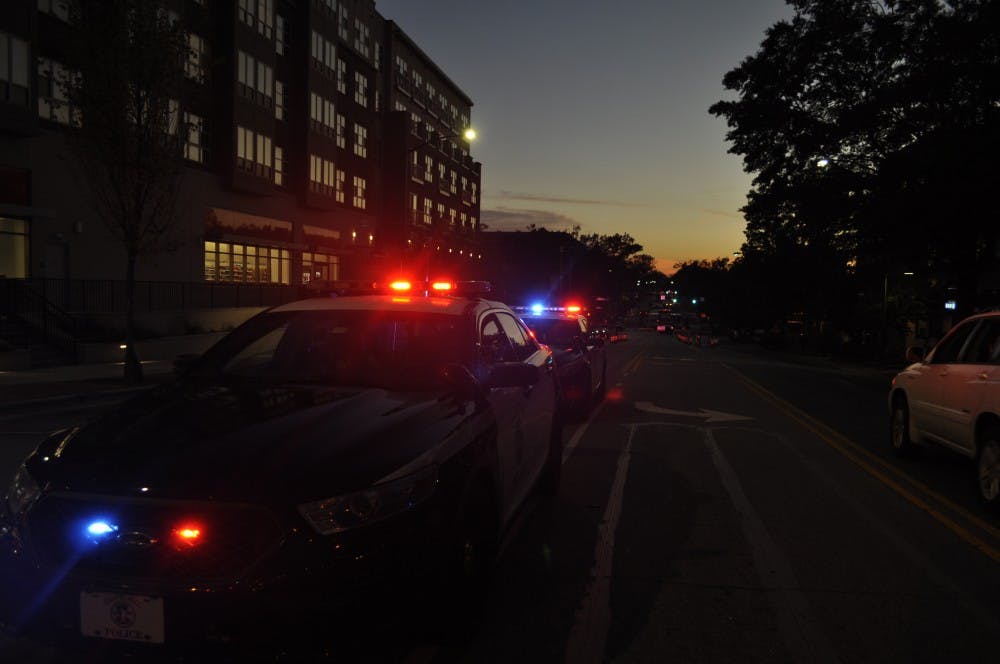The man, identified as 19-year-old Anthony Washington from Chapel Hill, was served a criminal summons on Sept. 27, according to the Chapel Hill Police Department.
Campus Unrest
UNC Graduate Student Mallory Turner said she has noticed fear among students and people in the community and believes solutions need to be addressed. She said at one point, she drove her classmates home at night because many of them were on edge.
“The school needs to bring students, faculty and law enforcement together to create better solutions and put systems in place that make everyone feel safe,” Turner said. “We need long-term change.”
In response to concerns and community unrest, interim Chancellor Kevin Guskiewicz addressed campus safety concerns on an online message.
“We continually make improvements to the safety features around campus, most recently installing more interior locks in classrooms and increasing lighting and cameras in specific areas,” Guskiewicz said. “I have asked my leadership team to examine the current state of our lights, key fobs and reader systems to determine any needed improvements.”
Guskiewicz said that although UNC employs the best practices followed by other large universities, the emergency communication system will be addressed to ensure it meets the current needs of the community.
Interim Vice Chancellor for Student Affairs Jonathan Sauls also listed the University’s safety resources on the student affairs website, including Alert Carolina, LiveSafe mobile app, SafeWalk UNC, the Point-to-Point shuttle, resources on the Safe@UNC website and University-promoted safety tips.
“It’s got to be about doing what makes you feel comfortable, but knowing that assault is never the survivor’s fault, and it’s never because they failed to do something,” Kayla Baresich, a Delta Advocate for the Greek community, said. “It’s important for women (and everyone) to feel safe on our campus, and they should take whatever actions necessary to make themselves feel safe, but it’s never a guarantee that something won’t happen.”
Baresich said it’s important to be honest about the dark reality of these issues because people need to be aware and prepare themselves.
“It’s a duty that we owe to survivors,” Baresich said. “We won’t be safe until we have a culture that challenges the norms of rape and sexual assault.”
This issue is far from being solved, she said.
To get the day's news and headlines in your inbox each morning, sign up for our email newsletters.
Building a Safer Campus
But in the meantime, UNC organizations are working toward building a safer campus and community.
UNC SafeWalk is a student-led organization that promotes nighttime safety by having Department of Public Safety-trained students walk other students home from 10 p.m. to 2 a.m. Sunday through Thursday. Students can also call to request a walk at any time.
Carol-Ann Smith, assistant director of finance for UNC SafeWalk, said the past average of three walks per night has recently shot up to nine to 12 walks per night for each team.
In light of recent events, students can now reserve walks ahead of time during the day through the UNC SafeWalk website, Smith said. Walkers will meet students anywhere and escort them to where they need to go.
“We need to take away the stigma that asking someone to walk you home is perceived as weak or scared because that’s not the case at all,” Smith said. “We need to normalize people going in groups and checking in on each other.”
UNC SafeWalk can also walk students to off-campus locations, which Smith said is an aspect that many students do not realize. The organization wants to cultivate a greater sense of community and is happy to accommodate walks of any distance, she said.
Baresich said society needs to stir cultural change by promoting student training in bystander intervention and safety awareness, such as One ACT.
She said it’s important for students to be aware of helpful resources in the community as well, such as the Orange Country Rape Crisis Center.
“It’s OK to be scared right now,” Baresich said. “But be empathetic with others, prioritize self-care and do what makes you feel comfortable.”
Society needs to shift the responsibility to potential perpetrators and away from victims, Baresich said.
"We won’t push this under the rug," she said.
@annasouthwell1
university@dailytarheel.com




